1998 Toyota 4Runner Service, Tires & Repairs
Get Started
Complete Auto Care for Your 1998 Toyota 4Runner
-
TIRES FOR YOUR 1998 Toyota 4Runner View Tire Info GET TIRE PRICING
-
REPAIR FOR YOUR 1998 Toyota 4Runner View Repair Info SCHEDULE REPAIR
-
MAINTENANCE FOR YOUR 1998 Toyota 4Runner View Maintenance Info SCHEDULE MAINTENANCE
-
OFFERS FOR YOUR 1998 Toyota 4Runner Limited Time Tire Offers VIEW ALL COUPONS
1998 Toyota 4Runner Tires
Recommended Tires | Tire Information
1998 Toyota 4Runner Tires Sizes, Speed Ratings, and Inflation
Not sure about your 1998 Toyota 4Runner tire size? Use the following chart to find information on tire size, speed rating, and inflation.
| Trim Level | Speed Rating | Inflation in PSI F/R | Tire Size |
|---|---|---|---|
| 1998 Toyota 4Runner SR5* | S | 29 PSI/29 PSI | P225/75R15 |
| 1998 Toyota 4Runner SR5* | S | 32 PSI/32 PSI | P265/70R16 |
| 1998 Toyota 4Runner Limited* | S | 32 PSI/32 PSI | P265/70R16 |
| 1998 Toyota 4Runner Limited* | S | 29 PSI/29 PSI | P225/75R15 |
| 1998 Toyota 4Runner Base* | S | 32 PSI/32 PSI | P265/70R16 |
| 1998 Toyota 4Runner Base* | S | 29 PSI/29 PSI | P225/75R15 |
|
1998 Toyota 4Runner SR5* Speed Rating: S Inflation F/R: 29 PSI/29 PSI |
|
1998 Toyota 4Runner SR5* Speed Rating: S Inflation F/R: 32 PSI/32 PSI |
|
1998 Toyota 4Runner Limited* Speed Rating: S Inflation F/R: 32 PSI/32 PSI |
|
1998 Toyota 4Runner Limited* Speed Rating: S Inflation F/R: 29 PSI/29 PSI |
|
1998 Toyota 4Runner Base* Speed Rating: S Inflation F/R: 32 PSI/32 PSI |
|
1998 Toyota 4Runner Base* Speed Rating: S Inflation F/R: 29 PSI/29 PSI |
* Note: these models have different tire sizes depending on vehicle options.
Recommended Tires for Your 1998 Toyota 4Runner
What tires are best for a 1998 Toyota 4Runner? Check out the following tire brands and types.
 ALENZA AS ULTRA
ALENZA AS ULTRA
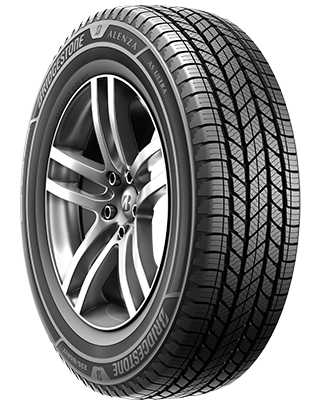
- No warranty
- All-Season
- Light Truck Tires
 Blizzak DM-V2
Blizzak DM-V2
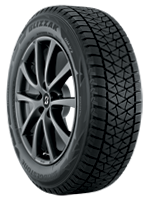
- No warranty
- Winter
- Winter
 Dueler A/T Revo 3
Dueler A/T Revo 3
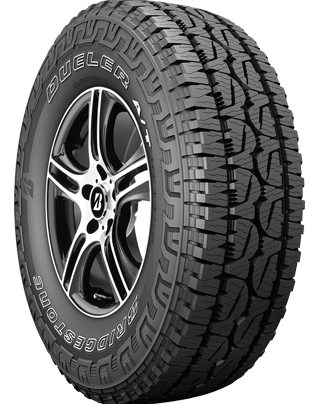
- Platinum Pact Limited Warranty
- All-Season
- Light Truck Tires
 Destination LE3
Destination LE3
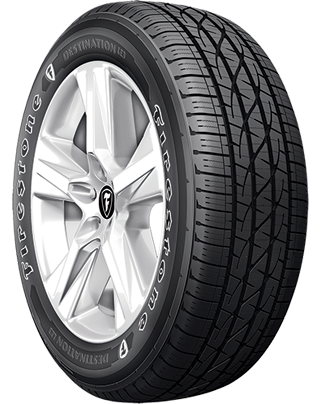
- No warranty
- All-Season
- Light Truck Tires
 Destination A/T2
Destination A/T2
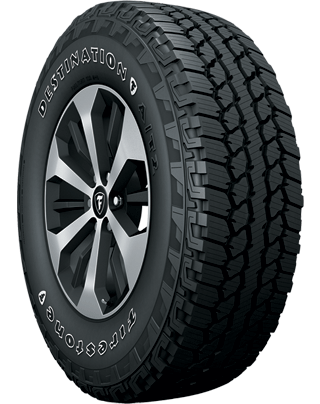
- Gold Pledge Limited Warranty
- All-Season
- Light Truck Tires
 Winterforce 2 UV
Winterforce 2 UV
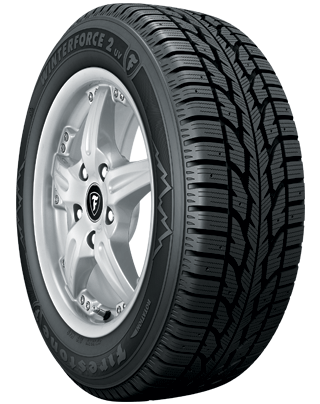
- No warranty
- Winter
- Winter

- No warranty
- All-Season
- Passenger Tires
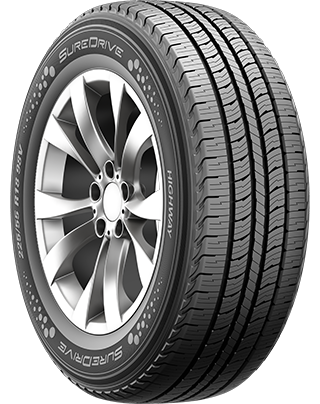
- No warranty
- All-Season
- Light Truck Tires
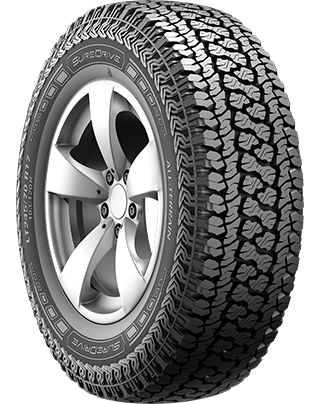
- No warranty
- All-Season
- Light Truck Tires
 Extensa A/S II
Extensa A/S II

- No warranty
- All-Season
- Passenger Tires
 OPEN COUNTRY A/T III
OPEN COUNTRY A/T III
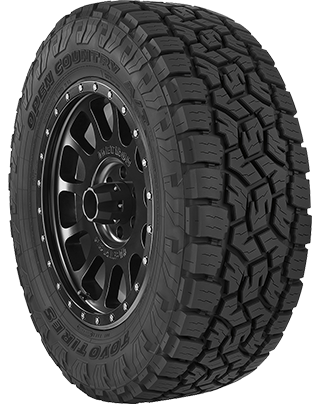
- No warranty
- All-Season
- Light Truck Tires
1998 Toyota 4Runner Tire Information
Apart from finding the right tire size, you also want to consider a handful of other factors when buying new Toyota 4Runner tires like how and where you drive, and how much you want to spend. When evaluating your driving conditions, think about where you live (countryside vs. city vs. mountains) and the kind of unexpected weather you're likely to experience. Many drivers who live in states that experience all four seasons choose to purchase two sets of tires: one set for winter, one set for summer. Other drivers prefer the convenience of all-season tires. They make one trip to the tire shop and they're pretty much ready for rain, light snow, or sun!
Next, consider your driving style. If you're an avid off-roader who yearns to pioneer new paths, you have very different tire needs than a highway commuter who doesn't hit the hills very often. Visit your local Firestone Complete Auto Care for help selecting the tire that's right for you, or get started by browsing tires that fit your Toyota 4Runner.
Toyota 4Runner Installation and More
Firestone Complete Auto Care installs more tires on more cars than most other companies. We're your tire shop and a complete service center for tire installation, maintenance, repair, rotation, and alignment! We make it easy to buy new 1998 Toyota 4Runner tires online and book an installation appointment at the same time.
Questions About 1998 Toyota 4Runner Tires
-
Why does Toyota tire inflation matter? A small decrease in tire pressure can have a big impact on your driving. Maintaining proper tire pressure can help improve braking time, increase fuel economy, and boost tire lifespan.
-
Why are there numbers on the side of my Toyota 4Runner tires? Your tire sidewall numbers tell you the recommended load carrying capacity, speed rating, treadwear, traction, and tire size. Talk to a tire technician to learn how to read Toyota tire numbers.
-
Is there an easy way to check Toyota tire tread depth? Stay on top of your tire tread depth to help avoid a dangerous drive. You can check tread depth with a penny. Hold the penny so that Abraham Lincoln is facing you, then place your penny into a tread groove upside down. If you can see the top of Abe’s head, your tread is shallow and it might be time for new Toyota 4Runner tires. Grab a penny. Hold the so that Abe Lincon's head is facing you and his hair is pointing toward the ground. Then, place the penny into a tread groove. If you can see the top of Abe’s head, your tread is shallow and it might be time for new Toyota 4Runner tires.
Repair Services for Your 1998 Toyota 4Runner
When to repair, when to replace? Click on a repair below to learn more about Toyota 4Runner repairs at Firestone Complete Auto Care.
Get Repairs for Your 1998 Toyota 4Runner
Car repairs: for many drivers, that phrase is a dreadful one. We’re here to change that, though. At Firestone Complete Auto Care, we want to make car repair painless and hassle-free. When you come to us for 1998 Toyota 4Runner repair services, rest easy knowing that your 4Runner is in capable hands. We'll work to evaluate the scope of repairs needed and explain your options. If a repair isn't necessary, we won't recommend it.
How Much Does Toyota 4Runner Repair Cost?
Several factors can affect the cost to repair your 1998 Toyota 4Runner, including which repairs are needed, prices of appropriate replacement parts, how much labor the repair will take, and where you live. And check back often — we update our deals regularly!
A few different aspects can influence repair costs for your 1998 Toyota 4Runner, like
1998 Toyota 4Runner Auto Repair Q&A
-
Do I still need scheduled maintenance even when nothing is wrong with my Toyota? Don’t neglect scheduled maintenance. Sure, you could skip out on a few recommended maintenance services, but you may pay the price later. Bring your vehicle to Firestone Complete Auto Care at recommended service intervals to address minor issues before they get out of hand and keep your car running newer, longer.
-
Should I bring my Toyota in even if I can't pinpoint the problem? No, we’re not talking about finding the best jams on the radio! You know your car best, and you’re the first person who will notice if something doesn’t feel right (like new smells, sights, or sounds coming from your car). If you sense that something is 'off,' stop in for a Courtesy Check to have these symptoms checked out ASAP. Early action could help you prevent Toyota 4Runner repairs.
-
Why do you recommend certain repairs for my Toyota? Trust is more than just a saying on the wall. It’s a window underneath it. That’s why we won’t recommend services or repairs for your 1998 Toyota 4Runner unless we think they’re vital to your safety on the road.
Get Your 1998 Toyota 4Runner Brakes Fixed
You might have a strong and reliable engine in your Toyota 4Runner. But if you can’t stop it, it’s as good as scrap metal. Don't wait if you're experiencing brake squeaks or a loss of braking power. Safe driving is difficult when your brakes are anything but their best. What's more, waiting for things to figure themselves out can result in more damage to your brakes and your wallet. Go to your local Firestone Complete Auto Care for 1998 Toyota 4Runner brake repairs. We offer many affordable brake repairs like brake pad/shoe removal and replacement, brake rotor/drum machining, brake fluid exchange/bleeding, and brake caliper and wheel cylinder installation.
Toyota 4Runner Brakes Questions
-
What is causing my 4Runner to shake when I brake? Your 4Runner could shake when you brake due to worn brake pads or rotors, warped rotors, loose or worn suspension components, or faulty brake calipers. You can always schedule a free brake inspection at the first sign of strange brake behavior.
-
How often do I need to replace my 4Runner brake pads? Brake pads generally last between 30,000 and 40,000 miles. Your driving can affect how long your 4Runner brake pads last, though. For example, mainly driving on highways and gradually braking can help increase the lifespan of your brake pads, and carrying hefty loads or riding your brakes can shorten it.
-
Does brake fluid leak when the car is off? Your 4Runner has a closed hydraulic brake system, meaning you should not have a brake fluid leak under normal conditions. However, parts of your brake system can wear out over time or become damaged, which can lead to a brake fluid leak.
When to Get Toyota 4Runner Drivetrain Repairs
Drivetrains for front, rear, and all-wheel-drive and 4WD vehicles are quite different, so you don't want to go to just anyone for drivetrain repair. You want to come see the technicians at Firestone Complete Auto Care. We can take care of most 1998 Toyota 4Runner drivetrain components Your Toyota 4Runner may need driveshaft attention if you feel vibration as your vehicle accelerates, clunks when shifting, heavy vibrations in your floorboards, or resistance when turning.
1998 Toyota 4Runner Drivetrain Q&A
-
How do I know if my Toyota drivetrain is damaged? Your Toyota 4Runner drivetrain might be damaged if you notice strange noises from the rear of your vehicle, see fluid leaking, or have issues turning.
-
Why is my 4Runner malfunction indicator light (MIL) on? The malfunction indicator light — also known as the check engine light — on your 4Runner can illuminate for a variety of reasons, including engine issues, electrical problems, damaged sensors, transmission problems, misfires, and faulty connections.
-
Is a drivetrain malfunction in my 4Runner serious? A drivetrain malfunction in your 4Runner should never be taken lightly. Driving with a malfunctioning drivetrain can put you in danger and lead to further vehicle damage, so it's essential to have a qualified mechanic assess and repair the problem as soon as possible.
1998 Toyota 4Runner Wheel Alignment
With an alignment service, adjustments are made to your Toyota 4Runner’s suspension system, which connects the wheels with the rest of the vehicle. In an alignment service, the individual angles of your tires are adjusted so that they come into contact with the road in just the right way — the way Toyota intended them to. Bring your 1998 Toyota 4Runner in for a wheel alignment and we'll start with an alignment check. Then, we’ll adjust the angles as needed until they match recommended measurements from Toyota.
Answers to Toyota 4Runner Alignment Questions
-
How can I avoid knocking my Toyota 4Runner out of alignment? Potholes and uneven roads can knock your car out of alignment, so stay aware of the road ahead and adjust your speed (or avoid these obstacles whenever it’s safely possible).
-
When should you get a wheel alignment for your 4Runner? It’s usually suggested you check your alignment about every 6,000 miles or 6 months (whichever occurs first). Still, you should reference your 4Runner owner’s manual for Toyota's recommended interval.
-
Do you need an alignment with new 4Runner tires? You likely aren't required to get an alignment when you put new tires on your 4Runner, but it's a super smart idea! An alignment can help ensure optimal tire wear, fuel efficiency, and handling. Still, you should reference your 4Runner owner’s manual for what’s recommended.
1998 Toyota 4Runner Engine Services
If your 1998 Toyota 4Runner needs engine repair, our expert techs will let you know what needs to be done and why before they get started. We don't start working until we have your approval. If a repair can wait, we'll let you know. But if immediate repairs are necessary for your safety, we’ll make sure that's clear, too. We seek to give you all the info you need to make a smart decision about our services. By choosing Firestone Complete Auto Care for 4Runner engine repairs and you can feel confident knowing that we use Toyota-approved parts and components like the timing belt, oil gasket, sensors, or another part.
Engine Q&A 1998 Toyota 4Runner
-
Why does my 4Runner’s check engine light come on when I start it? Generally, your check engine light turning on upon ignition is not a bad thing. It’s just your 4Runner firing up its circuits. The light should turn off in a bit, but come see us if it doesn't.
-
Why is my Toyota 4Runner making engine noise? Strange under-the-hood noises can point to problems within your Toyota 4Runner engine. Tapping or knocking could mean you need an oil change. Whistling sounds could mean you have an intake leak or misaligned belt. Squealing may be caused by a loose fan belt, and grinding could be a sign that something is wrong with your brakes — not the engine.
-
Are you unknowingly damaging your Toyota 4Runner engine? Certain driving habits can hurt your engine. These habits include driving on an empty fuel tank, revving your engine while the vehicle is in Park, or slamming the gas pedal while the engine is still cold. Steer clear of these habits to help protect engine performance and efficiency.
Tire Repair for Your 1998 Toyota 4Runner
If the road has been rough on your 1998 Toyota 4Runner tires, Firestone Complete Auto Care can help. In some cases, a tire doesn’t have to be replaced – it can be plugged and patched with a simple repair. Depending on the damage, though, a repair might not be the right move. Our technicians can determine which option is best for your situation. We’ll begin by taking a look at where the damage is, the type and extent of the tire damage, and how all of your tires are wearing.
If your 1998 Toyota 4Runner tire puncture can be repaired, we’ll get to work on the steps to fix it: (1) Remove the tire from the wheel for inspection and repair, (2) use a filler to close up the puncture (this is to keep moisture from getting in), and (3) re-seal the inside lining of your tire so that air won’t escape.
Frequently Asked Toyota 4Runner Tire Repair Questions
-
How soon should I have my flat tire repaired? Driving on a flat or underinflated tire can put extra stress on your wheels and alignment. While it’s sometimes necessary to drive a short distance on a flat tire to get to a safe place, don’t take any other trips in your 4Runner until you can have the flat tire repaired or replaced.
-
Will a temporary sealant fix my Toyota's flat tire? A temporary sealant may be able to help you get to a repair location safely. But temporary or emergency sealants could possibly damage TPMS sensors, and in some cases may even void the warranty on your Bridgestone or Firestone tires. If your tire needs extensive repair, sealant can add time and labor costs to the process.
-
Why do my 4Runner tires keep losing air? Your 4Runner tires might keep losing air due to a leaking valve stem, puncture or hole in the tire tread or sidewall, or damaged wheel.
Maintenance for Your 1998 Toyota 4Runner
You want your Toyota 4Runner to last as long as possible. If you put in the effort to keep up with proper maintenance, you could hit 200,000 miles (or beyond!) in your 4Runner.
Guide to 1998 Toyota 4Runner Scheduled Maintenance
Instead of waiting for an issue to arise with your 4Runner, you can stay ahead of problems before they even begin. It’s as easy as following the recommended maintenance schedule that’s been written specifically for your 1998 Toyota 4Runner! This recommended maintenance schedule is written by the auto manufacturer, Toyota themselves. Driving conditions, climate variations, and other variables can affect which scheduled maintenance services you’ll need; however, there’s a good chance that your vehicle’s recommended maintenance services will include oil changes, tire rotations, brake pad replacement, filter changes, and fluid checks and exchanges. Keeping up with routine service appointments is a great way to keep your 4Runner running for longer, keep you safer on the road, and prevent common 1998 Toyota 4Runner problems.
Overview of Essential Toyota 4Runner Maintenance Needs
Bring your 1998 Toyota 4Runner to Firestone Complete Auto Care for factory-recommended maintenance services and an expert technician will begin by performing a Courtesy Check. The Courtesy Check helps us see what we’re working with under the hood, and allows us to alert you to any potential problems before they worsen. During a Courtesy Check, we’ll always check your battery, then we’ll move on to inspect your 4Runner’s head and tail lights, tires, fluid levels, alignment, and windshield wipers.
Firestone Complete Auto Care is your one-stop shop for 1998 Toyota 4Runner maintenance and repairs. Don’t wait until something goes wrong with your car. Visit your nearest location for proactive maintenance today.
1998 Toyota 4Runner Maintenance Questions
-
What do I do if I hit a pothole in my Toyota 4Runner? Check your car for pothole damage! If you’ve recently hit a pothole (or even if you don’t remember hitting one… they can be sneaky!) check your tire treads, tire sidewalls, and wheels for damage. Potholes can also knock your car out of alignment, so have your alignment checked if you suspect you’ve driven over a rough patch of road lately.
-
When should I use high mileage oil in my Toyota 4Runner? If your Toyota 4Runner has ticked past 75,000 miles, consider switching to high mileage oil at your next oil change to give your engine what it needs to go another 75,000 (or more!). High mileage oil: make it a high priority!
-
Why are my Toyota dashboard lights on? Because there might be a problem under the hood. Those warning lights are there for a reason! As soon as you notice that one’s illuminated, take your Toyota 4Runner to Firestone Complete Auto Care so you can address any small problems long before they worsen.
Battery Size & Replacement for 1998 Toyota 4Runner
Researching battery replacements for your Toyota 4Runner?
| Battery | Engine | Warranty | Cold Cranking Amps | |
|---|---|---|---|---|
| 24F-3 | L4/2.7L | Replacement 24 months | Performance months | 650 |
| 35-2 | L4/2.7L | Replacement 36 months | Performance months | 640 |
| 24F-RP | L4/2.7L | Replacement 48 months | Performance months | 750 |
| 24F-3 | V6/3.4L | Replacement 24 months | Performance months | 650 |
| 24F-6 | V6/3.4L | Replacement 36 months | Performance months | 750 |
| 24F-RP | V6/3.4L | Replacement 48 months | Performance months | 750 |
1998 Toyota 4Runner Batteries
On average, auto batteries last anywhere from three to five years. Don’t get stranded by your 4Runner’s car battery. Replace it regularly instead! Watch for signs that your current battery is getting too old or too weak. A slow engine crank, an illuminated battery or check engine light, bloated battery case, corrosion-covered posts, or dim headlights may all indicate that your battery needs attention.
Or, you can get a complimentary battery check at your nearest Firestone Complete Auto Care. Visit us for a complimentary battery check and, if necessary, a battery replacement to help keep your 1998 Toyota 4Runner running! Car batteries are only one of our many strong suits. Our expert technicians understand Toyota service recommendations for 4Runner car batteries’ reserve capacities and cold cranking amps. Get help identifying the type and size of battery that's best for your 4Runner, and schedule a weekday or weekend battery replacement service for your car.
Commonly Asked Toyota 4Runner Battery Questions
-
Why doesn’t my Toyota 4Runner battery stay charged? A car battery that needs to be jump-started every time is as good as dead. It may be getting old. Or, you’ve been leaving the doors slightly open and the dome lights on during the night. Stop in for a free battery check at your nearest Firestone Complete Auto Care and learn more about your battery's charge.
-
How long do car batteries last? A car battery normally lasts three to five years, but this number can vary based on battery type, your driving habits, and battery maintenance.
-
Why is there white, flaky stuff around my 4Runner’s battery post? The white, flaky stuff that can build up around your 4Runner’s battery terminals is known as corrosion. Acid leaking from your vehicle’s battery post can have a chemical reaction with the air, leading to an accumulation of the white, powdery substance over time. Corrosion can affect the flow of electricity between your battery and the electrical system in your 4Runner, possibly causing issues with electrical performance and starting. If left unaddressed for long enough, it may even cause your battery to prematurely fail.
1998 Toyota 4Runner Oil Changes
Your 1998 4Runner’s oil should be changed according to Toyota’s recommended oil change intervals. Outside of Toyota-recommended oil change intervals, your 4Runner may need an oil change if your check engine light is on, you hear knocking sounds coming from the engine, sense an oil smell in the cabin, or notice excess vehicle exhaust. You may also need an oil change more frequently than Toyota recommends if you haul heavy loads, drive in dusty areas, go off-roading a lot, or go at low speeds on long distance trips.
Whether it’s synthetic, conventional, or a blend of both — your local Firestone Complete Auto Care has the right oil for your Toyota 4Runner. Consult Toyota's recommendations to select the right 1998 4Runner oil and talk with a teammate to learn more about our oil options: Quaker State® Advanced Durability™ conventional oil, Pennzoil® High Mileage Vehicle® motor oil, Pennzoil Platinum® Full Synthetic motor oil with PurePlus™ Technology, and Shell Rotella® heavy-duty engine oil. During an oil change, one of our techs will change your 4Runner’s oil, replace and recycle your used oil and filter, inspect the rest of your car’s filters, refill vital car fluids, and perform a courtesy inspection on your entire vehicle. Make an appointment for an oil change service today and let the oil experts take care of your 4Runner's engine.
1998 Toyota 4Runner Oil Change Questions
-
Why is the oil light on in my Toyota 4Runner? If you’re overdue for an oil change, it might trigger your Toyota 4Runner oil change reminder light. If the oil pressure light is illuminated, it could be due to low engine oil, a failing oil pump, a malfunctioning oil pressure sensor, or a clogged oil filter.
-
Can I change my Toyota 4Runner oil at home? Changing your own oil isn't as convenient as you might think. It requires special tools and old oil must be disposed of properly. Having your oil professionally changed reduces the chances of something going wrong with the oil change, but also with your vehicle down the road.
-
Why is my Toyota 4Runner spewing blue or gray exhaust smoke? There could be an oil leak and your engine is burning oil. Time to have a qualified technician check things out. The leak could be caused by several issues like leaking valve seals, damaged piston rings, or worn cylinder walls.
1998 Toyota 4Runner Tune-Up & Engine Service
Regular engine tune-ups can optimize your 4Runner’s power on the road. Your local Firestone Complete Auto Care offers a range of engine tune-up services for your 1998 Toyota 4Runner. One option is the standard Firestone Tune-Up. It includes a complete visual inspection of engine components, installation of new spark plugs, and a lifetime warranty on parts*. Another service option pays special attention to the filters in your 4Runner. Specifically, we replace the fuel filter and air filter. The third tune-up option is a fuel system cleaning service, which is a three-step process that removes varnish, dirt, and carbon deposits on your 4Runner's fuel injectors, throttle body, and throttle plate. This can improve your fuel system’s performance (and therefore, your engine’s performance). Consider this when choosing a tune-up service for your 4Runner: your vehicle’s maintenance record and mileage can determine which service is best. Ask one of our technicians what your vehicle needs, based on your driving habits and your car’s current condition.
*Ask a Firestone Complete Auto Care teammate about full terms and conditions for warranties.
1998 Toyota 4Runner Engine Tune-Up Q&A
-
What happens if my Toyota 4Runner spark plugs fail? Replace spark plugs on time or about every 30,000 miles or so. Spark plugs are small but mighty. The spark of electricity that the plug emits across a small gap creates the ignition for the combustion needed to start your car. Without that spark, your car won't start.
-
What does a puddle underneath my Toyota 4Runner mean? Puddles could indicate that your vehicle is leaking coolant, oil, or brake fluid. Ignoring these leaks can lead to permanent engine damage, so address these symptoms ASAP with a tune-up service.
-
How frequently do the fuel injectors in my Toyota 4Runner need to be cleaned? The frequency at which car fuel injectors should be cleaned can vary depending on several factors, including the type of fuel used and the driving conditions. Some manufacturers generally recommend a fuel system cleaning as part of your general car maintenance, or as needed based on symptoms of poor fuel system performance.
1998 4Runner Toyota Steering & Suspension Services
When you first drove your 1998 Toyota 4Runner, the ride was probably so smooth that you didn’t even think about it! Now, however, things are starting to feel a little rough. Perhaps your 4Runner feels bouncy, sways to one side, or makes an unusual noise when going over a speed bump. The first sign of problems is a good time to bring your 1998 Toyota 4Runner in for steering and suspension repairs. We'll get to the root of the problem and, if your 4Runner suspension system needs repair, we’ll go over the services you need and how much they will cost before we do any work.
Questions About 1998 Toyota 4Runner Steering & Suspension
-
Why is my Toyota 4Runner bouncing excessively? If it feels like you’re on a trampoline every time your 4Runner goes over a bump or dip, you may have a problem with your struts or shocks. Faulty shocks and struts can’t properly absorb road bumps, leading to a bouncy ride.
-
Why does my 4Runner front end dip forward when I brake? The forward momentum and weight transfer to the front wheels during braking can cause your 4Runner's front end to dip forward. A damaged or faulty suspension system may fail to distribute the weight and force effectively, causing the front end to dip even more.
-
What role do tire pressure and tread depth play in my Toyota's suspension? Proper tire care can reduce strain on the suspension system, and also alert you to the need for new tires. Uneven tire wear is one sign of steering and suspension system problems, but it can also contribute to more.
A/C Service for Your 1998 Toyota 4Runner
Our trained technicians will do what they can to solve your 1998 Toyota 4Runner A/C problems. During this initial A/C performance check, we’ll look at the state of your 1998 Toyota 4Runner’s A/C system to evaluate what repairs are necessary (if any). This check includes a visual inspection, performance test, and pressure and leak test.
While your 1998 Toyota 4Runner’s air conditioner is being serviced, we’ll also do an A/C evacuation and recharge. To do this, one of our technicians will remove the refrigerant in your A/C system (if there is even any left to remove). Then, they’ll use Toyota’s specifications to evacuate the system. Finally, we’ll recharge the A/C system with new refrigerant.
Frequently Asked Questions for 1998 Toyota 4Runner A/C Systems
-
What’s making my 4Runner A/C put out warm air? An A/C blowing hot air has several possible root causes. There could be an issue with your compressor clutch, a blown fuse, a leak, or a clog in the expansion valve.
-
How does my A/C system get a leak? Over the years, the rubber seals and gaskets in your 4Runner’s A/C system naturally degrade. Moisture can get into the system and cause a malfunction, or parts can simply wear out so that your system no longer seals properly.
-
Why does my vehicle have to be moving for my 4Runner’s A/C to work? Damaged or worn components in your 4Runner’s electrical or air conditioning system can cause the A/C to only work when the car is moving. You may be dealing with low coolant or a faulty cooling fan.
Transmission Services for 1998 Toyota 4Runner
Your transmission carries power from the engine to the wheels so that you can drive at the speed you desire. Because of the transmission’s responsibility to translate the right dose of power into the right amount of speed, a tiny transmission issue can take a major toll on your car’s performance. 1998 Toyota 4Runner transmission problems can show up as shifting delays, jumping or grinding during acceleration, the car shaking on the road, or a burning smell or whistling sounds coming from under the hood. If you ignore Toyota 4Runner transmission issues you might notice your fuel economy decrease or find that you can't drive your 4Runner at all. Our expert techs are familiar with 1998 4Runner services and perform them according to Toyota-recommended specifications. As soon as you suspect something’s wrong with your 4Runner’s transmission, book an appointment at your local Firestone Complete Auto Care to help keep your engine running at peak performance.
1998 Toyota 4Runner Transmission Q&A
-
When should I have my 4Runner's transmission fluid checked or exchanged? Regularly checking and exchanging your 1998 4Runner’s transmission fluid is one of the best ways to help the transmission system perform. Some technicians would say that between 30,000 and 60,000 miles is a good timeframe for having your Toyota's transmission fluid checked and replaced, but that timeline can vary depending on how your vehicle is used and your manufacturer’s recommendations. The good news is that transmission fluid leaks are affordable to repair and easy to spot.
-
Is it possible for transmission fluid to leak from my Toyota 4Runner? Over time, transmission fluid can leak from your Toyota 4Runner, potentially causing transmission problems. A transmission fluid leak may be caused by a damaged transmission pan, faulty transmission cooler lines, worn-out seals, a cracked transmission housing, or an overfilled transmission.
-
Is it okay to drive a 4Runner with a transmission fluid leak? You should avoid driving with a transmission fluid leak. Your transmission system relies on transmission fluid to operate properly, and a leak may decrease performance, cause your 4Runner to overheat, or even lead to transmission failure.
Vehicle Inspection for 1998 Toyota 4Runner
When you bring your vehicle to Firestone Complete Auto Care for any service, we’ll automatically do a multi-point Courtesy Check. The technician will begin by testing your Toyota 4Runner's battery to determine how much charge remains. We’ll follow the battery inspection with a visual check of your Toyota 4Runner’s lights, windshield wipers, filters, hoses, alignment, tires, fluid levels, and belts.
Every service performed at your nearest Firestone Complete Auto Care will include a Courtesy Check, but you can also request a Complete Vehicle Inspection for your 1998 Toyota 4Runner if you suspect there may be a bigger problem. During a Complete Vehicle Inspection, we’ll visually check everything that’s on the list for a Courtesy Check. Additionally, we’ll perform an examination (by hand!) of your exhaust system, steering and suspension, and brakes. The goal of this type of inspection is to unearth significant issues that might wreak havoc on your 1998 Toyota 4Runner if left unaddressed.
Depending on your location, you may be able to complete your vehicle’s safety tests or state inspection at your nearest Firestone Complete Auto Care. Specific requirements for these types of inspections vary by state.
FAQs for 1998 Toyota 4Runner Vehicle Inspections
-
How do I know if I should have an inspection on my Toyota 4Runner? If you’ve noticed something that doesn’t feel quite right in your car lately, a Courtesy Check could give you peace of mind. We can help you get to the bottom of strange engine noises, a jerky steering wheel, or an engine that's hard to start.
-
Help! My 1998 Toyota 4Runner failed the state inspection test. Can you get it to pass? Don’t panic! Come in for a complete inspection today and we’ll find (and repair) the root cause before you have your vehicle retested.
-
What's the ideal timing for a full vehicle inspection on my Toyota 4Runner? You should bring your Toyota 4Runner in for a full vehicle inspection if something weird happens and you can’t find the problem. A new dashboard light might come on, you may hear strange sounds under the hood, or your steering might feel off. A complete inspection is also a great idea before a road trip for added peace of mind.
Radiator Service & Repair for 1998 Toyota 4Runner
Staying on top of routine radiator maintenance for your 1998 Toyota 4Runner is a huge factor in the longevity of your engine. To keep your radiator functioning, Toyota recommends replacing your antifreeze or coolant at scheduled intervals but it’s a good idea to keep your eyes open for any indication that your radiator is failing. You might be driving around (or about to be stranded) with a failing radiator if you notice leaking coolant, overheating, or an illuminated low coolant dashboard light.
If you bring your vehicle to Firestone Complete Auto Care, we start with a comprehensive inspection of your Toyota 4Runner’s cooling system. We then do a machine-powered radiator exchange, replenish flushed chemicals, sealants, and lubricants, and then pressure check for leaks. If you’re about to lose your cool over a too-hot engine, rest assured that we’re here to give your 1998 Toyota 4Runner the top-notch service it needs.
1998 Toyota 4Runner Radiator Q&A
-
What does an illuminated coolant temperature light mean for my Toyota? Pay attention to the temperature gauge and lights on your dashboard. If a low coolant warning light comes on or your dashboard temperature gauge keeps rising, it’s likely that your engine is about to overheat (and could leave you stranded on the road). Wait for the engine to cool down, then have your coolant system checked immediately at your nearest Firestone Complete Auto Care.
-
Why is my 4Runner overheating? One of the main reasons your Toyota 4Runner engine might overheat is because you don’t have enough coolant. Other causes include a clogged radiator, a damaged cooling fan, a malfunctioning thermostat, or a faulty water pump.
-
Why does the radiator in my 4Runner sound like it’s rumbling or boiling? Your 4Runner’s cooling system could contain air pockets or your radiator might be clogged. Another possibility is a faulty radiator cap, which is an easy fix!